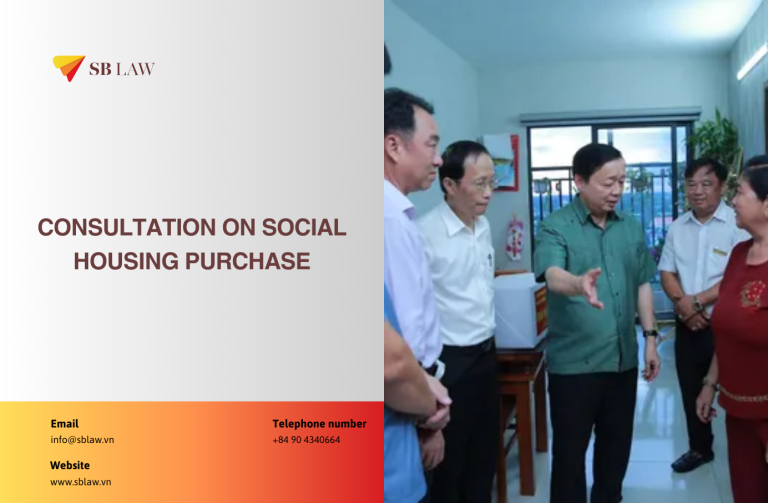
1. Adjustment of regulations on e-commerce
The Government issued decree 85/2021/ND-CP on September 25th, 2021 amending and supplementing a number of articles of Decree 52/2013/ND-CP on e-commerce with adjustments to a number of regulations on E-commerce, specifically:
The remarkable point of this Decree is that traders and organizations, which provide logistics services and other supporting services in e-commerce activities, are subjects of e-commerce activities (Clause 6, Article 1) instead of only applying to traders and organizations providing technical infrastructure as before.
In addition, Decree 85/2021/ND-CP also classifies social networking as an operation form of an e-commerce exchange when it has one of the following activities (Clause 15, Article 1):
- Allow users to open booths to display and introduce goods or services.
- Allow users to set up branch websites to display and introduce goods or services.
- Have a buy-sell section that allows users to publish sales information about goods and services.
Moreover, the new Decree also requires sellers on e-commerce exchange to provide more detailed information about goods and services, specifically as follows (Clause 12, Article 1):
- For goods and services introduced on the website, the seller must provide information so that the customer can accurately identify the characteristics of the goods or services to avoid misunderstandings when deciding on the offer to a contract.
- Information about goods published on the website must include mandatory contents shown on the goods labels according to the provisions of Law on goods labels, except for product-specific information, such as: date of manufacture and expiry; the number of production batch, the frame and the machine.
- Sellers that meet the investment and business conditions requirements must announce the number, date and place of issuance of the License or Certification or other forms of documents as prescribed by law on business conditions of that industry or profession.
Decree 85/2021/ND-CP will take effect from January 1st, 2022.
2. Maximize overtime with temporary workers
Circular 18/2021/TT-BLDTBXH was issued on December 15th, 2021 stipulating working time and rest time for employees doing temporary production jobs and processing jobs, which stipulates to increase the maximum number of working hours and overtime, according to which:
Limits on standard working hours and overtime hours specified in Article 6 of Circular 18/2021/TT-BLDYBXH are as follows:
- Total standard working hours and overtime hours must not exceed 12 hours/day
- Total standard working hours and overtime hours must not exceed 72 hours/week (Circular 54/2015/TT-BLDTBXH stipulates 64 hours/week, particularly no more than 48 hours/week for employees doing heavy, toxic or dangerous occupations)
- Total overtime hours must not exceed 40 hours/month (Circular 54/2015/TT-BLDTBXH stipulates 32 hours/month, particularly no more than 24 hours/month for employees doing particularly heavy, heavy, toxic or dangerous occupations)
- The employer shall choose to apply the regulations on working hours and overtime on a weekly or monthly basis, and write in the plan of working hours and rest times in the year specified in Clause 2 of this Article. 8 Circular 18/2021/TT-BLDTBXH.
- The total number of overtime hours for each employee must not exceed 300 hours/year.
Thus, from February 1st, 2022, the maximum working time and overtime of temporary workers and processing jobs will increase by 8 hours/week and 8 hours/month.
3. Cosmetic business establishments must submit statistical reports
The Minister of Health has just issued Circular 25/2021/TT-BYT dated December 13th, 2021 providing for the statistical report of the pharmaceutical - cosmetic sector. Accordingly, cosmetic production and trading establishments will have to submit statistical reports on their fields to serve the statistics, monitoring and evaluation of the Ministry of Health. Whereby:
- Subjects implementing statistical report:
Article 2 of Circular 25/2021/TT-BYT stipulates 04 groups of related subjects, implementing statistical report in the field of pharmacy - cosmetics, including:
(1) Units under the Ministry of Health.
(2) Departments of Health of provinces and centrally-run cities (referred to as Departments of Health).
(3) Health of ministries and branches (hereinafter referred to as branch health).
(4) Establishments producing and trading in drugs, medicinal ingredients and cosmetics (referred to as production and trading establishments) and agencies, organizations and individuals related to statistical work in the field of pharmacy and cosmetics Products.
- Reporting period: Statistical reporting period is a specific period which stipulates that the subject of a statistical report must show the results of operations in data according to the statistical criteria in the statistical report form. Statistics are calculated by calendar days, including:
- Statistical report for the first 6 months of the year: Calculated from January 1st to the end of June 30th of that period;
- Annual statistical report: Calculated starting from January 1st to the end of December 31st of that period;
- Unscheduled statistical reports: In case an irregular statistical report is required to fulfill the requirements of state management, the requesting agency must make a requirement document, which must include: specify the reporting period, the deadline for receiving the report, and the specific statistical reporting criteria.
- Method of sending reports: In document until the Ministry of Health makes statistical reports via electronic reporting software.
Circular 25/2021/TT-BYT takes effect from February 1st, 2022.
4. Medical devices are traded as normal goods
Circular 23/2021/TT-BYT was issued on December 9th, 2021 amending the list of medical equipment purchased as normal goods and not required to declare eligibility for trading as specified in Appendix III, which was issued together with Circular 46/2017/TT-BYT dated December 15th, 2017 (Clause 1, Article 1 of Circular 23/2021/TT-BYT).
The list of medical devices that are traded as normal goods and not required to be declared eligible for purchase includes:
- Type B self-testing in-vitro diagnostic medical devices and HIV self-testing in-vitro diagnostic medical devices;
- Home blood pressure monitor;
- Electronic thermometer, infrared thermometer;
- Medical equipment used to measure personal blood glucose: blood glucose monitor, lancing device, test strip, blood collection needle, standard solution, control solution;
- Nebulizer;
- Personal bandages;
- Artificial tears are classified as medical devices;
- Condom;
- Vaginal contraceptive film (no pill);
- Vaginal lubricant (gel or solution);
- Electric hot/cold compress.
Thus, from January 25th, 2022, HIV self-testing in-vitro diagnostic medical devices can be purchased as normal goods and do not have to be declared eligible for sale.
Circular 23/2021/TT-BYT takes effect from January 25, 2022.
5. An increase in pension and social insurance allowance
On December 7th, 2021, the Government issued Decree 108/2021/ND-CP on adjustment of pension, social insurance allowance and monthly allowance.
Accordingly, from January 1st, 2022, the pension, social insurance allowance and monthly allowance of December 2021 will be increased by 7.4% for the following subjects:
- Cadres, civil servants, workers, public employees and employees (including those who have time to participate in voluntary social insurance, retirees from Nghe An farmer's social insurance fund transferred under Decision 41/2009/QD-TTg on the conversion of Nghe An farmers' social insurance to voluntary social insurance); soldiers, people's police and people doing cypher work who are receiving monthly pensions.
- Cadres of communes, wards and townships specified in:
- Decree 92/2009/ND-CP on titles, numbers, a number of regimes and policies for cadres and civil servants in communes, wards and townships and those who work part-time at commune;
- Decree 34/2019/ND-CP amending a number of regulations on cadres and civil servants at a commune and part-time workers at a commune, in villages and residential quarters;
- Decree 121/2003/ND-CP on regimes and policies for cadres and civil servants in communes, wards and townships;
- Decree 09/1998/ND-CP amending Decree 50/CP on subsistence allowances for commune, ward and township officials who are enjoying monthly pensions and allowances.
- Persons who are receiving a monthly allowance for loss of earning capacity according to the provisions of law; people who are receiving monthly benefits according to:
- Decision 91/2000/QD-TTg on allowances for those who have reached the end of working age at the time of discontinuation of monthly allowance for loss of earning capacity;
- Decision 613/QD-TTg on the monthly allowance for those who have from full 15 years to less than 20 years of actual working, whose time limit of receiving an allowance for the loss of earning capacity has expired;
- Rubber workers who are receiving monthly allowances under Decision 206-CP on policies for newly liberated workers who do heavy and unhealthy jobs, are old and weak, and have to leave their jobs.
- Commune, ward and township cadres are receiving monthly allowances under Decision 130-CP dated June 20, 1975 and Decision 111-HDBT on amending a number of policies and regimes for commune and ward officials.
- Soldiers currently receiving a monthly allowance according to Decision 142/2008/QD-TTg on implementing the regime for soldiers participating in the resistance war against the US with less than 20 years of service in the army, demobilized to the locality (amended by Decision 38/2010/QD-TTg).
- People's policies are receiving a monthly allowance under Decision 53/2010/QD-TTg on regimes for officers and soldiers of the People's Public Security who participated in the resistance war against the US with less than 20 years working in the Public Security. People have left their jobs and been discharged from the army and returned to the locality.
- Soldiers, people's policies, people doing cypher work receive salaries as soldiers and people's police who are receiving monthly allowance according to Decision 62/2011/QD-TTg on regimes and policies for the subjects who participated in the war to defend the country, performed international missions in Cambodia, and helped Laos friends after April 30th, 1975, who were discharged from the army or quit their jobs after April 30th, 1975.
In addition, the above subjects retire before January 1st, 1995 after making adjustments according to the provisions of Decree 108/2021/ND-CP and have a pension, social insurance allowance, monthly allowance of less than 2,500,000 VND/month.
Decree 108/2021/ND-CP takes effect from January 20, 2022.
6. Postponing the 2022 basic salary reform.
On November 13, 2021, the National Assembly passed Resolution 34/2021/QH15 on the State budget estimate for 2022, which officially postponed the salary reform for the base salary mentioned in Clause 3, Article 4 Resolution 23/2021/QH15 of the National Assembly: “…Concentrating resources to implement wage reform from July 1, 2022.”. The revised content of Resolution 23/2021/QH15 is as follows:
"Article 3. Regarding the implementation of salary policy
- Postponing the implementation of salary policy reform specified in Clause 3, Article 4 of the National Assembly's Resolution No. 23/2021/QH15; priority adjustment of pensions for those who retire before 1995
[…]"
Since no wage reform has been implemented, the 2022 salary of the public sector group will still follow the current base salary with the following formula:
Salary = Salary coefficient x Base salary 2022
The base salary in 2022 will be 1.49 million VND/month; this salary has been implemented from July 1, 2019 to present.
Resolution 34/2021/QH15 takes effect from December 28, 2021.
7. Adding extra conditions for enterprises to send workers to work abroad.
On December 10, 2021, the Government issued Decree 112/2021/NĐ-CP guiding the Law on Vietnamese workers working abroad under contracts, replacing Decree No. 32/2020/NĐ-CP, in which there are additional conditions for service enterprises who send workers to work overseas. Adding extra conditions for enterprises to send workers to work abroad
Accordingly, businesses that want to be granted a license to operate the service of sending Vietnamese workers to work abroad under a contract, apart from fully meeting the requirements in Article 10 of the Law on Vietnamese Workers abroad working abroad under a contract, enterprises still need to meet additional conditions for each specific case specified in Article 12 (for sending Vietnamese workers to going to work in Taiwan), Article 15 (for sending Vietnamese workers to work in Japan) and Article 20 (for sending Vietnamese workers to work as domestic workers for families in other countries) of Decree 110/2021/NĐ-CP
Currently, Decree 38/2020/NĐ-CP only applies to enterprises operating in the service of sending workers to work as domestic workers in the receiving country in the Middle East. However, up to now, with Article 20 of Decree 110/2021/ND-CP, the National Assembly has added general conditions for all other countries in general, not just specific countries and territories.
Decree 112/2021/NĐ-CP will take effect from January 1st, 2022.
8. Increase the deposit level for enterprises providing labor export services
On December 10, 2021, the Government issued Decree 112/2021/NĐ-CP guiding the Law on Vietnamese workers working abroad under contracts, replacing Decree No. 32/2020/NĐ-CP, in which increase the deposit level for enterprises providing labor export services.
Accordingly, the deposit level of service enterprises sending workers to work abroad (service enterprises) is stipulated on Article 23 of Decree 112/2021/ND-CP :
- The enterprise makes a deposit of 2,000,000,000 VND (Two billion VND) at a bank, foreign bank branch legally established and operating in Vietnam (the deposit receiving bank). Currently, the deposit level is 1,000,000,000 (One billion VND) and service businesses can only deposit at commercial banks licensed to operate in Vietnam (Article 10 of Decree 38/2020/ND-CP).
Raising the deposit level is a move to limit the case that labor export service businesses do not have enough money to fulfill their compensation obligations to employees in the event of unforeseen circumstances. Moreover, allowing escrow at not only commercial banks that are allowed to operate in Vietnam but also expanding to banks that are established and operating legally in Vietnam has also created many advantages for companies wishing to use banks that are allowed to operate in both Vietnam and the country where they send workers.
- In addition, there is a new regulation added in Decree 112/2021/ND-CP: Service enterprises assign tasks to branches to perform service activities of sending Vietnamese workers to work abroad will have to escrow an additional deposit of 500,000,000 VND (Five hundred million VND) for each branch.
Decree 112/2021/NĐ-CP will take effect from January 1st, 2022.
9. Increase the retirement age of employees compared to 2021.
Article 169 of the Labor Code 2019 stipulates the retirement age of employees working under normal conditions as follows:
The retirement age of employees under normal working conditions is adjusted according to the roadmap until reaching full 62 years old for male employees in 2028 and full 60 years old for female employees in 2035.
From 2021, the employee's retirement age under normal working conditions is full 60 years and 03 months for male employees and full 55 years and 04 months for female employees; after that, every year increase by 03 months for male employees and 04 months for female employees.
Accordingly, by 2022, the retirement age of employees working in normal conditions will change as follows:
- Male employees: From full 60 years old and 06 months (Increasing 3 months compared to 2021).
- Female employees: From full 55 years old 08 months (Increase 04 months compared to 2021).
10. Eliminate interest rate incentives when buying and renting social housing
On November 30, 2021, the State Bank of Vietnam issued Circular No. 20/2021/TT-NHNN amending Circular 25/2015/TT-NHNN guiding concessional loans to implement the social housing policy, in which the interest rate incentives for buying and renting social housing were removed.
Specifically, Circular 20/2021/TT-NHNN has removed regulations on interest rate incentives when borrowing capital to buy, rent, or lease-purchase social housing in Clause 2, Article 2 of Circular 25/2015/TT-NHNN; From January 20, 2022, beneficiaries of preferential loans for implementation of social housing policies include:
- Borrowers for investment in social housing construction specified in Clause 1, Article 15 of Decree No. 100/2015/ND-CP:
“Article 15. Preferential loans for investment in social housing construction
- Borrowers:
- a) Enterprises or cooperatives that are investors in social housing projects other than capital sources or in the form specified in Clause 1, Article 53 of the Law on Housing for lease, lease purchase or sale;
- b) Enterprises, industrial production and service cooperatives invest in building houses by themselves to arrange for employees of that enterprise or cooperative without collecting rent or collecting house rent that does not exceed the rental price bracket for social housing promulgated by the provincial People's Committee;
- c) Households and individuals invest capital in construction of social houses for lease, lease purchase and sale.
[…]”
- Borrowers of loans for new construction or renovation and repair of residential houses are specified in Clause 1, Article 16 of Decree No. 100/2015/ND-CP, with reference to Clauses 1, 4,5,6,7, Article 49 of the Law on Housing 2014:
“Article 49. Subjects entitled to social housing support policies
The following subjects, if they satisfy the conditions specified in Article 51 of this Law, are entitled to the social housing support policy:
- People with meritorious services to the Vietnamese revolution according to the provisions of the law on preferential treatment for people with meritorious services to the Vietnamese revolution;
...
- Low-income people, poor and near-poor households in urban areas;
- Employees working in enterprises inside and outside the industrial park;
- Officers, professional non-commissioned officers, professional and technical non-commissioned officers, professional soldiers, workers in agencies and units of the People's Police and the People's Army;
- Cadres, civil servants and public employees by the Law on Cadres, civil servants and public employees.”
Circular 20/2021/TT-NHNN will take effect from January 20th, 2022.




